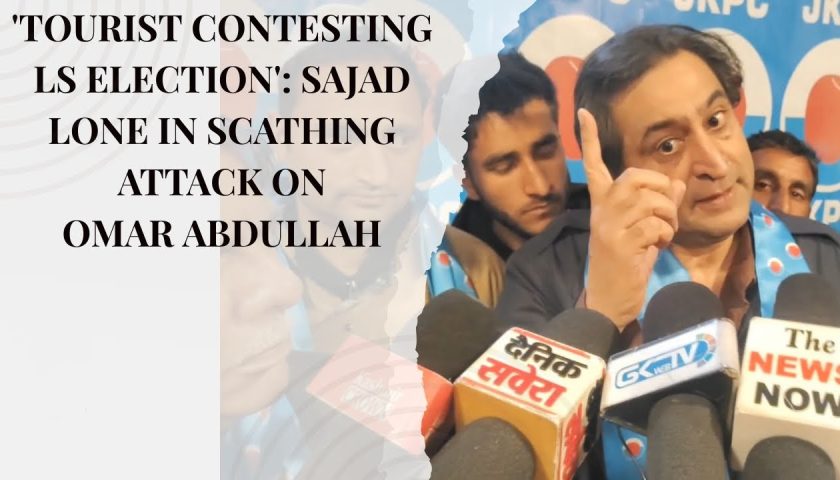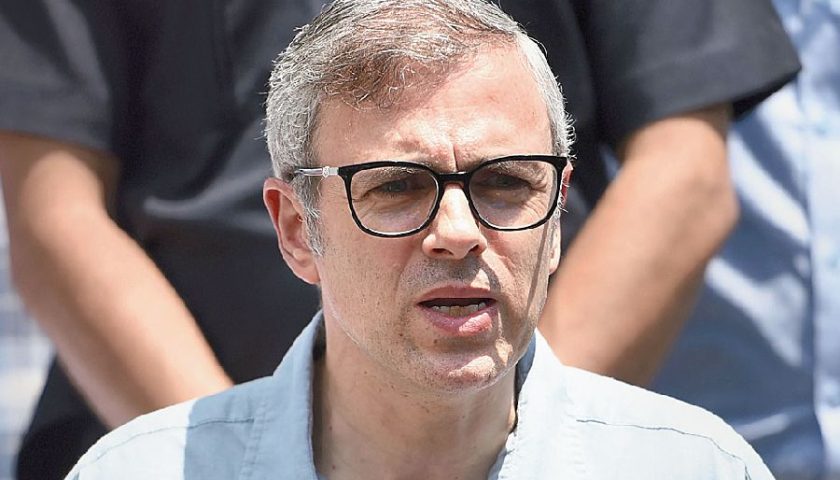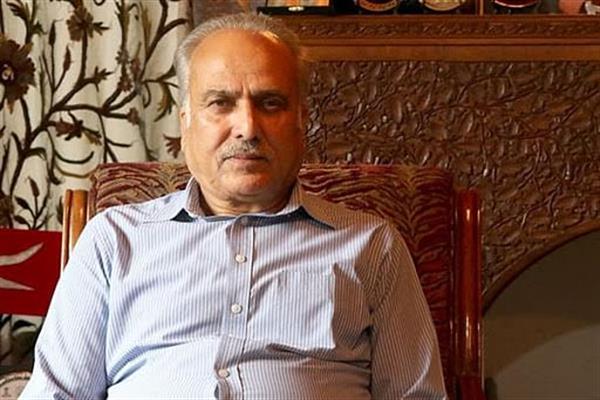Mirwaiz Umar
When Narendra Modi became Prime Minister, you were hopeful of forward movement on Kashmir citing your experiences under (late former PM) Atal Bihari Vajpayee era. Does that hope still exist?
There has been a change in policy as far as New Delhi is concerned as compared to the policy adopted by then NDA (National Democratic Alliance) government under Vajpayee. I think the basis of that engagement then was the realisation that Kashmir is a humanitarian problem. That is why Mr Vajpayee said we are willing to engage within the ambit of humanity. That opened a way for us to engage with Delhi and also go to Pakistan… This was a triangular approach where every party was talking to the other party. That approach is totally missing now. We have seen hardening of stand and extreme repression. That Vajpayee doctrine has been replaced by Doval doctrine. Now the state is engaging people through cordon-and-search operations. While Vajpayee was talking about peace, Mr Modi and his team are talking about war.
After Imran Khan came to power in Pakistan, he has repeatedly talked about Kashmir.
From day one , he (Imran Khan) mentioned that ‘if India walks one step, we will walk two steps.’ Pakistan did mean to engage but there has to be willingness on both sides. Mr Khan is repeatedly asking India to engage but there is no response on this side. The thing is that New Delhi is not willing to engage with Islamabad or with Kashmiris at this juncture. May be it has to do with the coming elections. It is very clear that their agenda is Hindutva and they want to focus on that.
India says there will be no talks till violence stops and accuses Pakistan of fomenting trouble in?Kashmir.
Many analysts say that if the BJP (Bharatiya Janata Party) feels that they are on a weaker wicket, they might use Kashmir and Pakistan in a broader context. If anything doesn’t work, definitely Pakistan, terrorism and Kashmir are those issues where they can rake up nationalistic ideas. It has to be seen what happens. And India accusing Pakistan of violence — they have been doing it for the past many years. The fact is that these are indigenous, young Kashmiri boys who are getting killed, maimed and blinded.
It has been more than 25 years that the separatists have been working in Kashmir without any breakthrough on the issue. Why have you failed?
What can you do when the other side is not ready to acknowledge the problem? They are only using military means. There is not much you can do other than being steadfast and strong. And that is what we have done. And that is what people have shown – generations of Kashmiris. Every other day we have to deal with different issues or disputes. Issues like settling outsiders, institutional autonomies and J&K Bank (turned into a public sector bank).
How do you see the Islamic State and al-Qaeda in Kashmir?
As far as the Kashmir militant movement is concerned, you can’t label it as al-Qaeda or any other thing. There is absolutely no trace of that. Even parties like Hizbul Mujahideen and others, they have been very clear about what their goal is. They are limited to Kashmir. There are certain aberrations, certain youth; when you are pushed to the wall, there is a possibility that certain sections tend to see things from a different picture. As a Mirwaiz, as a religious head, we have always maintained that it is a political problem. We have never said that it is Hindu India versus Muslim Kashmir.
This year has turned out to be the deadliest as far as killing of militants has been concerned in recent years. The central government says they are gaining control of the situation.
When has India said otherwise? India is claiming that Kashmir is our integral part but the fact is that (they) are not bothered about its people. It is only territory they are talking about. It is a very clear indication that they are dealing with the problem militarily. They are only bothered about how it is going to be played out in India. The public opinion is also being molded by a jingoistic media.
Hurriyat’s meeting with ex-PM of Norway Kjell Magne Bondevik has generated a lot of buzz. How did it come about?
It was after 5-6 years that a visit by any foreign dignitary happened. Mr Bondevik and particularly Oslo Center (founded by Bondevik) have some experience in conflict regions. He came here, went to Delhi, and went across to Islamabad. The important thing is that he talked about involvement of Kashmiris and secondly that there can be no military solution. Definitely his visit must have the blessings of certain powers; otherwise he would not have been allowed to come here.
So you think the Centre had given him the go-ahead?
Definitely, there has been some interest on Kashmir recently in the international arena ,especially after the UN (human rights) report on Kashmir. We hope the initiative will continue and there is some movement forward.
In the recent urban body polls, you gave a boycott call while the National Conference (NC) and Peoples Democratic Party (PDP) abstained, which resulted in the BJP making impressive gains in Kashmir, uncontested. Would you again ask the people to boycott and allow the BJP to dominate?
In terms of space to pro-India parties, NC, PDP or BJP won’t make any difference. In any case the institution of the army and the paramilitary forces is what guides government of India’s policy here. Even today, NC and PDP are getting labelled as being pro-Pakistan. I don’t think BJP making inroads is going to bother us because they are using money and muscle.
I think it is the NC and PDP which are at a crossroads. They have to decide what they have to do because of the fact that they have been discredited by the government of India. They have to take a call. They are the face of India in Kashmir.




